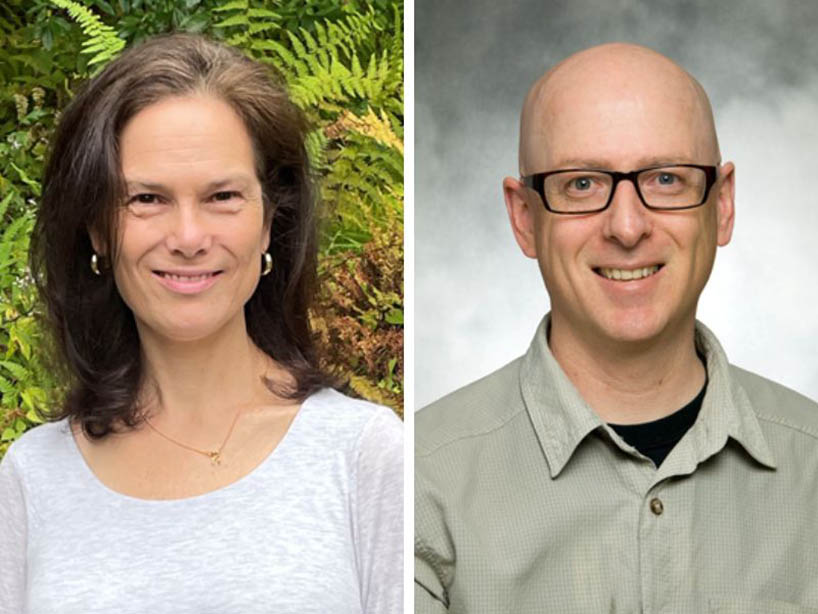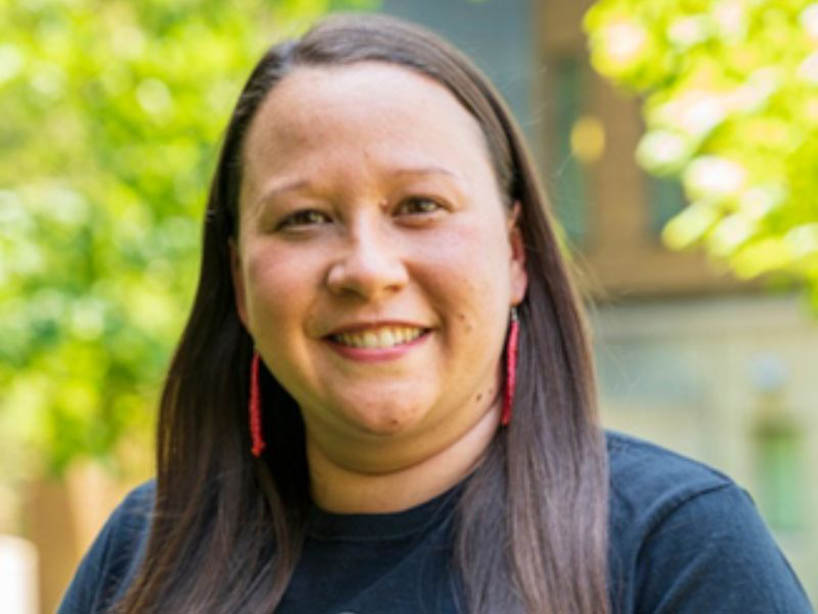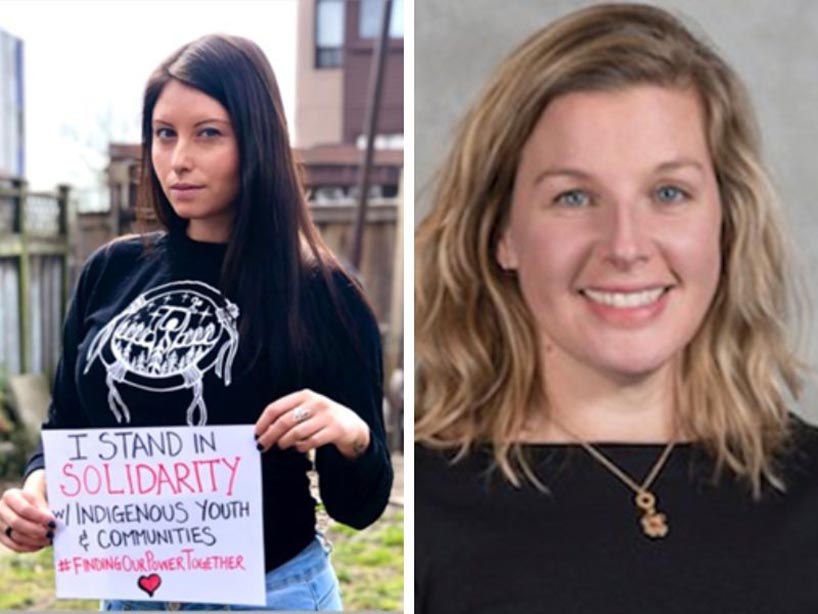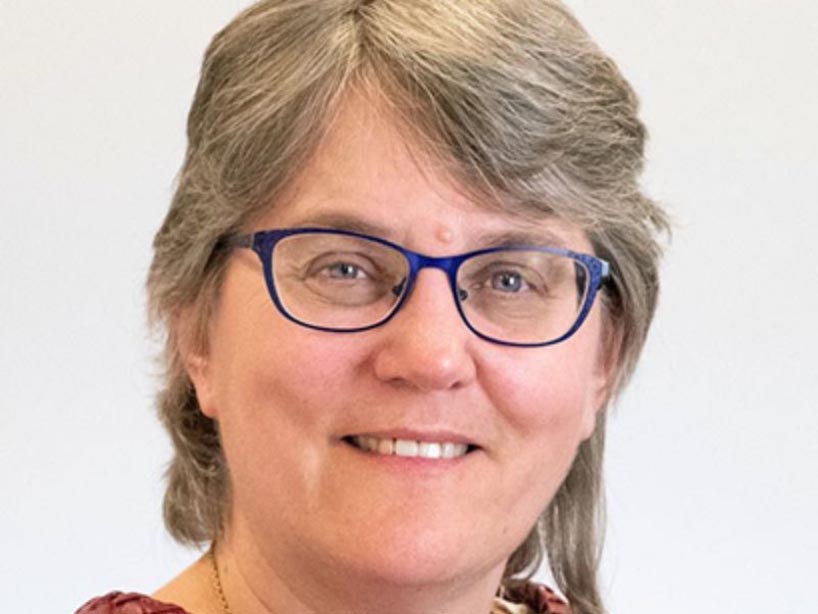Embedding Indigenous content in TMU’s curriculum

The Curriculum Development Fund is led by the Indigenous Education Council, with funding from the Office of the Provost and Vice-President, Academic.
Toronto Metropolitan University (TMU)’s Indigenous Education Council (IEC) identifies two important steps to support the success of Indigenous students in postsecondary education. The first is the need for more Indigenous curriculum and programming. The second is to engage First Nations, Métis and Inuit faculty and students in learning and research on Indigenous topics.
TMU faculty who received funding from the Curriculum Development Fund this past year are working on many fronts to address these steps. Their projects are helping TRSM students work with Indigenous high school students to show them the possibilities of post-secondary education; creating an Indigenous-informed academic calendar; finding resources to enhance anti-Indigenous racism in creative arts practices with children; and incorporating Indigenous knowledge into the School of Early Childhood Studies.
Formed in 2010, the IEC is responsible for guiding, developing and leading Indigenous education at TMU and is also responsible for administering the Curriculum Development Fund. Each year, through this program, funding is awarded to faculties and departments across the university to develop and embed Indigenous content within their curriculum.
“The IEC believes that the next seven generations of Indigenous Peoples will have greater opportunities and success in education at TMU through initiatives that are driven by Indigenous needs and values,” says Joanne Dallaire, Elder (Ke Shay Hayo) and senior advisor of Indigenous Relations and Reconciliation, and chair of the Indigenous Education Council. “It’s so important that this work is being done at the faculty member level as it will have a direct impact on current and future TMU students.”
2024-25 call for proposals
Applications for the 2024-2025 Curriculum Development Fund are now open. All programs, faculties, schools, or individual faculty members are invited to submit proposals related to curriculum development. Proposals are due by 5 p.m. on Wednesday, February 28, 2024. Learn more on the Indigenous Education Council website.
“I’m thrilled to see the great work our faculty members are doing with this funding from the Indigenous Education Council,” said Roberta Iannacito-Provenzano, provost and vice-president, academic. “Incorporating Indigenous history, perspectives, practices and experiences into TMU’s curriculum and pedagogical practices is integral to Indigenizing our campus and on our path towards truth and reconciliation.”
Meet the 2023-24 recipients of the curriculum development fund below.
Decolonising and Indigenising Psychology Committee (DIPC)
Department of Psychology, Faculty of Arts

Members of the Decolonising and Indigenising Psychology Committee. From top left: Andrew (Hyounsoo) Kim, Anik Obomsawin, Becky Choma, Caroline Erentzen, David Day, Fiona Thomas, Iloradanon Efimoff, Jaiden Herkimer, Karl Szpunar, Kristin Vickers, Stephanie Cassin, Tae Hart and Todd Girard.
The Decolonising and Indigenising Psychology Committee (DIPC) is a team of academics in the Department of Psychology in the Faculty of Arts. Together they are addressing a gap in the program by developing a new course on critical perspectives on colonialism in psychological research, teaching and practice.
With this funding from the IEC as well as from the Centre for Excellence in Learning and Teaching (CELT), the committee is currently conducting an environmental scan of available content related to “the impacts of colonialism on Indigenous Peoples and psychology” and consulting Indigenous scholars and knowledge holders.
The course proposal will likely include topics such as the impacts of colonial history and current systemic racism and discrimination, the residential school system and intergenerational trauma, an introduction to Indigenous knowledges, Indigenous psychology and cultural allyship.
To stay up to date with the committee’s work, findings and recommendations, visit the Decolonising and Indigenising Psychology Committee web page.
Charlene Ryan and Jason Nolan
School of Early Childhood Studies, Faculty of Community Services

Charlene Ryan is a professor in the School of Early Childhood Studies. Jason Nolan is the director of the Responsive Ecologies Lab and a professor in the School of Early Childhood Studies.
Creative Arts II is a mandatory fourth-year course in the School of Early Childhood Studies program that focuses on developing knowledge, skills and competencies in effectively engaging in the creative arts with young children.
With the support of this funding from the IEC, Jason Nolan and Charlene Ryan, who teach Creative Arts II, are researching and acquiring significant, impactful resources that will enhance student learning and broaden the dialogue and commitment to anti-Indigenous racism in creative arts practices with children.
Music education in schools and early learning settings in Canada has historically been ableist, white and euro-centric. Nolan and Ryan’s focus has been on contemporary and inclusive practices that challenge these biases so that their students are equipped with a well-informed and well-rounded pedagogy when they enter the workforce and practice the creative arts with the next generation of children.
Claire Dion Fletcher
Midwifery Education Program, Faculty of Community Services

Claire Dion Fletcher is a professor in the Midwifery Education Program.
The Midwifery Education Program (MEP) at TMU has a longstanding commitment to supporting the growth of Indigenous midwifery in Ontario and in Canada. For over 15 years the MEP has had an Indigenous admissions process that seeks to provide a culturally safe admissions process for Indigenous candidates.
This funding from the IEC is helping to map the National Council of Indigenous Midwives (NCIM) core competencies onto the MEP curriculum. The NCIM exists to promote excellence in reproductive health-care for Inuit, First Nations and Métis people. The framework outlines the core competencies, skills, knowledge and abilities of Indigenous midwives. Mapping the framework onto the MEP curriculum will allow for analysis of where these skills are currently being taught in the MEP and which skills are not being taught.
Inclusion of the NCIM framework in the MEP is an important step in ensuring that TMU is supporting the growth of Indigenous midwifery and is a step towards more culturally relevant education for Indigenous midwifery students.
Nicole Ineese-Nash and Susan Jagger
School of Early Childhood Studies, Faculty of Community Services

Nicole Ineese-Nash (left) and Susan Jagger work with other members of the ECS Curriculum Committee, Nicole Land, Sejal Patel and Kathleen Peets.
The School of Early Childhood Studies (ECS) is committed to supporting equity, diversity and inclusion both within the school and in the broader communities that it is part of. Inherent in this commitment is a dedication to the recognition of and respectful inclusion of Indigenous content, practices and experiences in academic courses and practical engagements with children and families.
With the curriculum development funding they received, the Curriculum Committee of the School of Early Childhood Studies is initiating a series of engagements with Indigenous stakeholders designed to incorporate Indigenous knowledge into the school, with a focus on curriculum, community engagement and research in Indigenous contexts.
Across the 2023-24 academic year, four mandatory speaker sessions are being offered to students to enhance their understanding of colonialism and its impacts, and to foster approaches to culturally safe practice with Indigenous children and communities.
Additionally, the curriculum committee plans to host an Indigenous Community Advisory Event in the winter 2024 semester to discuss the integration of Indigenous perspectives and experiences into the department. This event is intended as a starting point for many future engagements based on the Indigenous concept of "Caring for Children Well," which emphasizes holistic, community-centered approaches to child-rearing, family support and education.
Brooke Filsinger
Faculty of Science

Brooke Filsinger is the advisor to the dean, Indigenous education in the Faculty of Science.
The Faculty of Science is committed to increasing representation of Indigenous students, faculty and staff, and prioritizing the integration of Indigenous curriculum throughout the faculty.
This funding from the IEC will enable Brooke Filingser, advisor to the dean, Indigenous education in the Faculty of Science, in collaboration with Indigenous community members, Elders and knowledge holders, to develop an Indigenous-informed academic calendar for the TMU community. This calendar will consider both Indigenous teachings and seasonal knowledge and activities, along with the Faculty of Science academic calendar, acting as a temporal map or guide.
Calendars are deeply linked to our life-events, cultural practices and familial traditions. Within academia, calendars govern when students learn what topics, times of high stress and intense workload, and the times that are allocated for rest. An Indigenous calendar that is created or understood by the community is rooted in extensive knowledge of the land, seasonal changes and associated activities.
The calendar would aim to highlight times of the year when Indigenous students may be participating in ceremonies or traditional activities and inform targeted inclusion of Indigenous content that embeds relevant, local Indigenous knowledge in a wholistic and meaningful manner, connecting us to this land on which we learn.
Deborah Fels
Master of Health Administration (Community Care), Ted Rogers School of Management

Deborah Fels is the director of the Inclusive Media & Design Centre and a professor in the Ted Rogers School of Information Technology Management.
The Master of Health Administration (Community Care) at Ted Rogers School of Management is the first Canadian graduate degree in this growing sector. With the increasing importance of community care across health-care systems, this program addresses the critical need for leaders who know how to negotiate and manage care delivery across diverse populations and locations.
While there is some equity, diversity and inclusion content in all of the programs courses, they are revising all course outlines to ensure that Indigenous content is explicitly included. In addition, they are proposing a new Indigenous health elective course. This course will introduce students to Indigenous people’s community health issues and practices through an examination of the socio-political history of Canada.
The course will review the Canadian history of colonization and assimilation, and the outcomes and contemporary realities through the lens of Indigenous Peoples. It will also examine traditional health and well-being practices and their integration with other community health practices in urban and on-reserve settings.
Students will gain knowledge about social determinants of health that can improve population health and reduce health disparities for Indigenous people in Canada. The goal is to foster more meaningful individual and community engagement in research and practice.
The funding will also be used to work towards developing an Indigenous Entrance Scholarship, awarded to an Indigenous student with a demonstrated leadership role within their community.
Michael Mihalicz
Ted Rogers School of Management

Michael Mihalicz is the Indigenous advisor in the Office of the Dean and a professor at the Ted Rogers School of Management.
The Ted Rogers School is dedicated to making management education accessible, and providing opportunities and support for students from diverse backgrounds and capabilities.
Funding from the IEC and the CELT is helping to develop and implement a dual-credit, hands-on experiential learning course, Design Thinking Experience. In the course, students develop their own initiatives alongside coaches, industry experts and Indigenous high school students from across the GTA.
Together with the next generation of learners, TMU students work in small, multi-disciplinary teams to co-create the university experience that they want by initiating projects that are important to them and their learning. All high school students will earn university course credit and gain insight into what it's like to be a student at a major university. The real value of this course, however, is that they will see first-hand that a university degree is possible for them, that they are welcome and accepted at TMU, and that the university is a space where they can bring their whole selves.
This course aims to help establish a path to further education for Indigenous students who want to pursue university and to reveal an educational path that they might not have fully considered or felt was available to them.